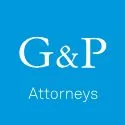Introduction
From 1st August, overseas entities who own property or land in the UK, must register with Companies House and tell them who their registrable beneficial owners are. Trusts are also required to disclose beneficiaries, but this is not publicly available. Lavinia Darby, Group Compliance Officer for the G&P Group, shares a guide to what this means to you if you own UK property through a trust or company.
Register of Overseas Entities
The UK created a Register of Overseas Entities (ROE) under the Economic Crime (Transparency and Enforcement) Act 2022. Whilst this initiative was on the cards for many years, the UK Government finally pushed it over the line and into reality in reaction to the invasion of Ukraine by Russia and the associated spotlight on the financial activities of wealthy Russians.
Those who own or lease property or land in the UK as an overseas entity must register with Companies House and tell them who the beneficial owners are.
Timescales
The timescales for the introduction of this new requirement are tight and entities affected only have until the end of January 2023 to complete their online registrations. The requirement to register applies to an overseas entity if it owns land purchased:
- in England and Wales on or after 1 January 1999
- In Scotland on or after 8 December 2014; and
- In NI on or after 1 August 2022.
Failure to register has significant penalties: fines and/or prison and restrictions on buying, selling, or transferring, leasing or charging the property.
Once registration is complete, information entered will be available to the public via the online register (excluding any trust information which will only be available to law enforcement and public authorities). It will allow law enforcement agencies, not just in the UK, to investigate ownership and wealth more effectively. More widespread public access to this information will no doubt lead to press and social media reporting on information made available via the register.
In practice considerations
Writing from the Turks and Caicos Islands, this impacts locally licensed Trust and Company managers who operate structures that include ownership of land or property in the UK. Being clear on who must be registered as a beneficial owner within a trust structure is key to getting the registration correct. Companies House guidance refers to individuals holding 25% of shares or voting rights, but also captures anyone who has the right to exercise significant influence or control over activities of the trust. It is important not to rely solely on the 25% number. Depending on the structure, disclosure of settlors, grantors and other interested persons may be required.
Data being filed on the register must be checked and verified by a UK regulated Agent, someone who is supervised under the UK's Money Laundering, Terrorist Financing and Transfer of Funds Regulations 2017. It is much simpler to utilise the services of a UK based adviser already linked to the entity to be registered, normally a law firm or accountancy firm. Many firms in the UK are already offering this service to their overseas entities.
There is lots to do, if you haven't started to look at this yet – now is the time.
This new Register is all part of a push across many jurisdictions for greater disclosure around beneficial ownership. With registers being introduced, or existing ones being made public in the US, BVI and other jurisdictions more work will be required.
For Media enquiries, please contact LisaThornton@sidekick.ky
The content of this article is intended to provide a general guide to the subject matter. Specialist advice should be sought about your specific circumstances.


